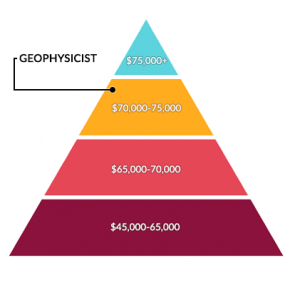All Categories
Featured
Table of Contents
Geophysicist Careers in Padbury WA 2021
This work is significantly contracted out, so consultancies supply another source of work. Consultancy firms differ in size, from really small business to big multinationals. Some consultancies are quite specialised in utilizing specific geophysical techniques or operating in specific locations, while others use a more varied series of services to their consumers.
The extraction of gas from garbage dump websites is another area of employment and this may grow in the future. Expedition business may carry out work for building and construction companies, public utility, mining companies and ecological firms, so geophysicists might be employed in any of these settings. Other employers consist of: geological surveysgovernment bodies and agenciesuniversities and research study institutes.


Vacancies might be noted in the oil and gas sector press. Recruitment is affected by oil rate changes and the level of competition for positions varies depending on this. Professions Days, which cover the complete variety of geoscience careers and are generally gone to by a variety of key market employers, are run by The Geological Society.
Geoscience, Geophysics Option, in East Fremantle WA 2022
A few of the large oil and gas business use a full two-year structured training program throughout the breadth of geophysics, including the chance to experience operate in various groups before specialising in one area. Your training may consist of work on: existing wellsmagnetic and gravitational potential field data analysisresearchrock analysis. However, it's more normal for your preliminary training to be provided on the job.

There may be a probationary period throughout which you work along with a knowledgeable associate. Competency-based appraisals happen regularly in many firms. In smaller sized companies, and for scholastic posts, there is not likely to be any official training - you'll be expected to begin work straightaway and get skills as you go along.
If you work for a smaller company, you may find that you need to take responsibility for setting up and moneying your own advancement and training. If you have a geology degree, subscription of The Geological Society can be helpful for networking and for keeping up to date with the industry.
What Is Geophysics And What Do Geophysicists Do? in Mt Richon WA 2020
You might also discover it beneficial to sign up with the PESGB (The Petroleum Expedition Society of Great Britain, which has a geophysics special interest group. After a probationary duration, and when you've gained some experience, you might advance to senior geophysicist, then group leader and after that into a senior role in management.
The ease of motion in between functions depends on the business structure. Study at Masters or Ph, D level in a subject related to geophysics or geosciences may assist with your career advancement and progression. The work market within the oil and gas market is extremely based on rate and this may impact your chances for profession development.
For skilled geophysicists, freelance consultancy offers a great route for profession development. As a geophysicist, you're most likely to have a number of jobs throughout your working life.
What Are Geological, Geochemical, in Mariginup Aus 2022
From geophysics, it's possible to concentrate on seismology (finishing more training to end up being a seismic interpreter) or to move into associated locations such as engineering geology or threat prediction.
Choosing what to study in college is a tough choice. Even if you understand that your field of interest depends on science, what program of research study is best for you? If you make the choice to major in physical and biological sciences and pursue a career as a geophysicist, you're getting ready for an interesting and profitable profession.
The first action to attaining your objective of becoming a geophysicist is earning a degree. Even for entry-level positions in the field of geoscience, you'll need a bachelor's degree (a geophysicist college degree) from a recognized college or university. Geophysicists must be able to: analyze rocks, pictures, and other pieces of information conduct research both in the field and in laboratories develop maps and charts of their findings write reports To achieve all this, students need a specialized education for geophysicist careers.
As mentioned above, you'll require a bachelor's degree in geoscience or an associated discipline, such as a physical science or a life sciences, to land an entry-level job. However trainees can also prepare by majoring in topics like: Biology Chemistry Computer technology Engineering Mathematics Physics The above geophysicist majors offer a more generalized method to a single scientific discipline, but most programs need students to take one or more geology course.
Latest Posts
Geophysicist - Job Role - Job Information in Mahogany Creek Oz 2023
Integrated Geophysical Surveys For The Safety in Koondoola Oz 2020
What Does A Geologist Do? in Pickering Brook WA 2021